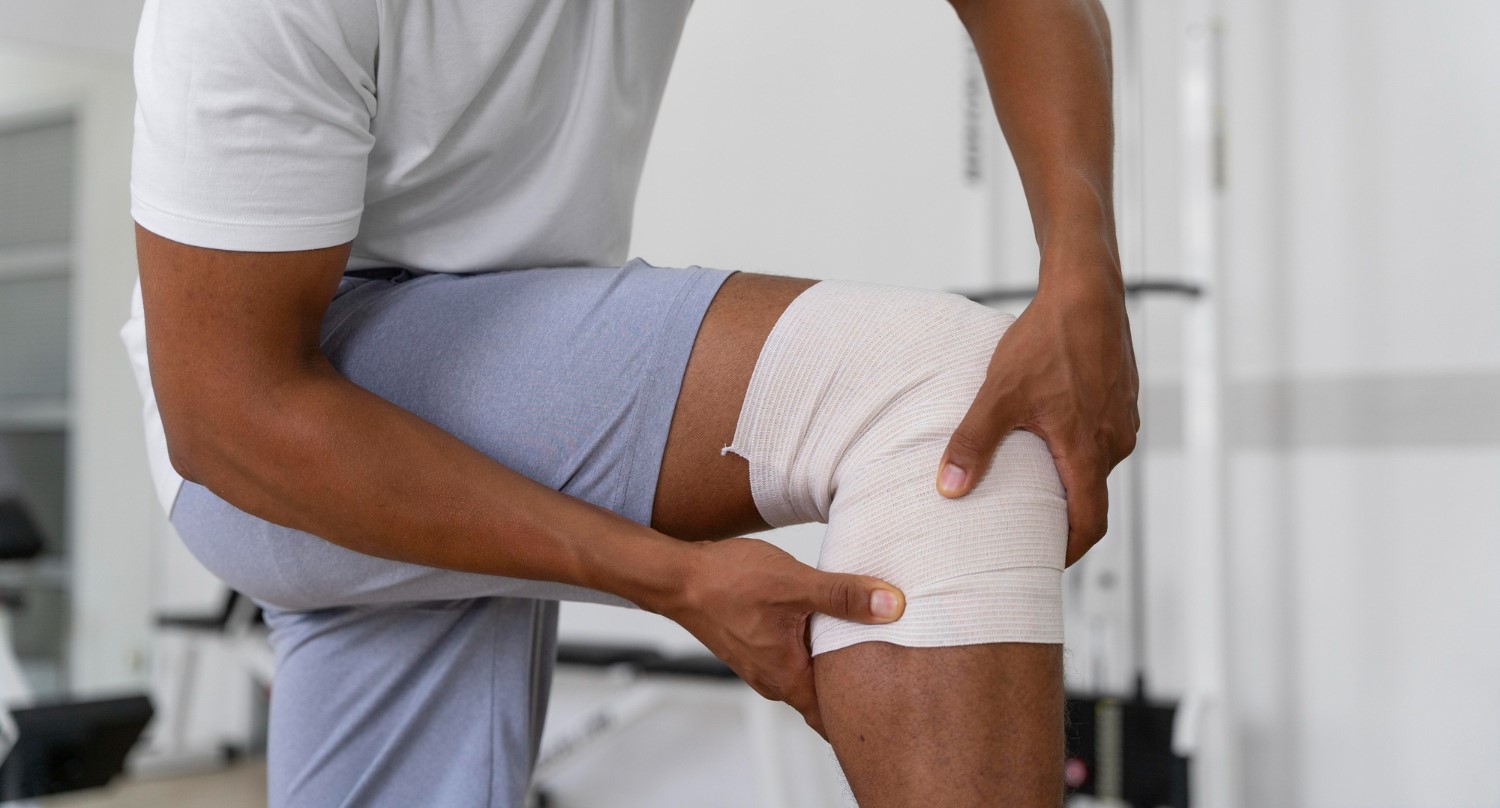Hip Replacement Surgery
Hip replacement surgery, or total hip arthroplasty, is a medical procedure where a worn or damaged hip joint is replaced with an artificial implant. This surgery aims to alleviate pain and enhance mobility in patients with hip joint disorders like osteoarthritis. The procedure involves replacing the damaged hip components with a prosthetic socket in the pelvic bone and a ball with a supporting stem in the femur. However, following hip replacement surgery, some patients may experience knee pain.
Knee Pain After Hip Replacement
This type of knee pain is typically a temporary condition, influenced by the surgery and recovery process. Leg manipulation during surgery and subsequent prolonged immobility may contribute to knee discomfort. The change in body alignment after the hip joint is replaced can result in altered stresses on the knee, potentially causing pain. In most cases, this pain resolves as strength and mobility improve during the recovery from hip surgery.
Causes of Knee Pain After Hip Replacement
Knee pain following hip replacement surgery can stem from a variety of factors, each contributing to discomfort in different ways:
- Surgical Techniques and Leg Manipulation: The knee may experience strain due to the positioning and movement of the leg during hip replacement surgery, potentially leading to post-surgical knee pain.
- Altered Biomechanics: The replacement of the hip joint alters the body’s alignment, affecting how the knee bears weight. This change can cause discomfort or pain in the knee.
- Muscle Weakness and Imbalance: Weakness or imbalance in the muscles surrounding the hip and knee, a common post-surgery issue, can impact the stability and function of the knee, leading to pain.
- Use of Assistive Devices: Recovery often involves using crutches or walkers, which alter typical walking patterns and can strain the knee joints.
- Pre-existing Knee Conditions: If a patient has knee issues, hip replacement surgery might exacerbate these conditions, heightening knee pain.
- Inflammation and Swelling: Inflammation and swelling around the operated hip can also affect the knee, contributing to pain and discomfort.
Diagnosis and Evaluation of Knee Pain Post-Surgery
The process of diagnosing and evaluating knee pain after hip replacement surgery involves several steps to determine the root cause of the discomfort. This typically includes:
- Medical History Review: A detailed review of the patient’s medical history includes assessing any pre-existing knee issues, the specifics of the hip replacement surgery, and when the knee pain began.
- Physical Examination: A thorough physical examination of the knee is conducted. This includes assessing pain, swelling, range of motion, and any signs of complications.
- Imaging Tests: Imaging tests, such as X-rays, are often used to examine the knee and hip. These help in checking for any abnormalities in the knee, issues with alignment, or problems with the hip implant.
- Gait Analysis: The patient’s walking pattern is observed to understand how changes post-hip surgery might be affecting the mechanics of the knee.
- Blood Tests: In some cases, blood tests are done to exclude the possibility of an infection, particularly if there are symptoms like fever or unusual swelling alongside the knee pain.
Treatment Options
Effective knee pain treatment after hip replacement surgery depends on the underlying cause. The primary treatment options include:
Pain Management
Over-the-counter pain relievers, such as acetaminophen or NSAIDs (non-steroidal anti-inflammatory drugs), are often recommended for managing knee pain. In more severe cases, stronger prescription medications may be required.
Physical Therapy
Tailored physical therapy can strengthen muscles around the knee and hip, improving stability and function, and alleviating pain.
Knee Supports
In some cases, using knee braces or supports can provide additional stability and comfort, helping to reduce pain.
Activity Modification
Adjusting daily activities to avoid actions that exacerbate knee pain is often advised. This may include limiting certain movements or activities until the knee pain subsides.
Injection Therapy
For persistent knee pain, corticosteroid injections or viscosupplementation (injecting lubricating substances) may reduce inflammation and pain.
Surgery
In rare cases, if knee pain is severe and persistent, and other treatments have been ineffective, surgical intervention might be considered.
Conclusion
While knee pain after hip replacement surgery is a relatively uncommon issue, patients need to recognize and address any knee discomfort following hip surgery. Maintain open communication with your orthopaedic surgeon and follow their recommendations closely for the best outcomes in their recovery journey.




